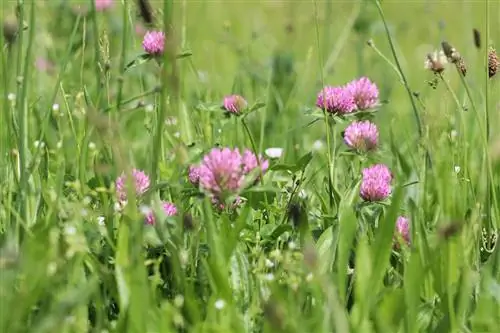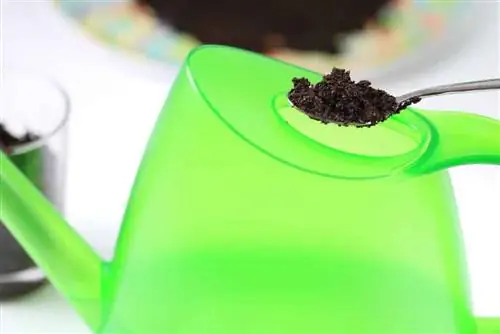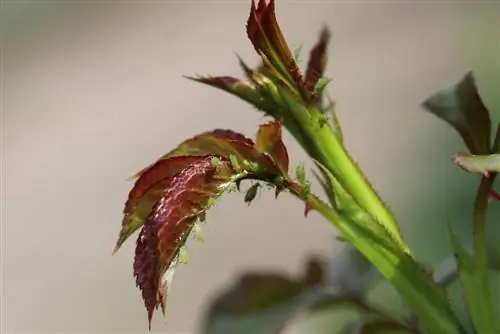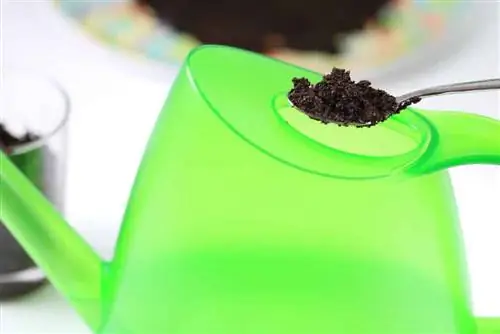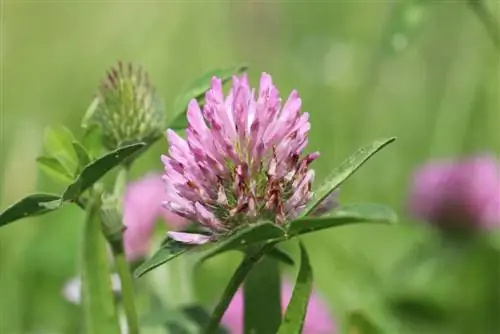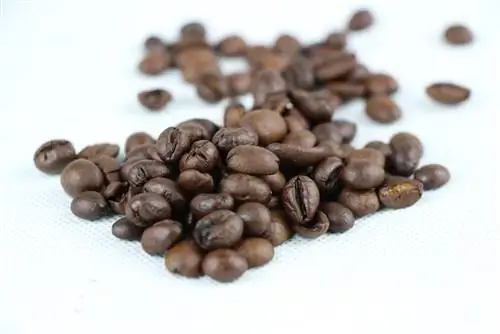- Author admin caroline@plants-knowledge.com.
- Public 2023-12-17 03:39.
- Last modified 2025-01-24 12:45.
Coffee grounds have established themselves as a nitrogen addition in home gardens. The ground beans affect the soil condition, making it difficult for the clover to further establish itself.
Coffee grounds: effect
Coffee grounds are not a miracle cure for clover in the lawn. Rather, it is a measure to strengthen the lawn and adjust the soil conditions so that the clover cannot spread any further. This is made possible by the nitrogen that is released from the coffee grounds into the soil and grass roots. Clover most often appears in lawns when there is a nitrogen deficiency or the soil is too alkaline. Coffee grounds are effective against these conditions because, in addition to releasing nitrogen, the soil becomes more acidic. Ultimately, this would mean that coffee grounds as fertilizer would limit clover development in the long term until the soil has the desired consistency. This method should work particularly effectively with the following types of clover:
- Common horn trefoil (Lotus corniculatus)
- White clover (Trifolium repens)
- Purple clover (Trifolium rubens)
- Arabian snail clover (Medicago arabica)
- Yellow sweet clover (Melilotus officinalis)
Note:
Avoid using coffee grounds if it is sorrel (Oxalis). Wood sorrel relies on acidic and nitrogenous soils, which would increase the infestation through the use of the powder.
Dosage
The dosage is essential for the optimal use of coffee grounds against clover. Clover species are very stubborn and must be controlled over a longer period of time in order to remove them from the lawn.
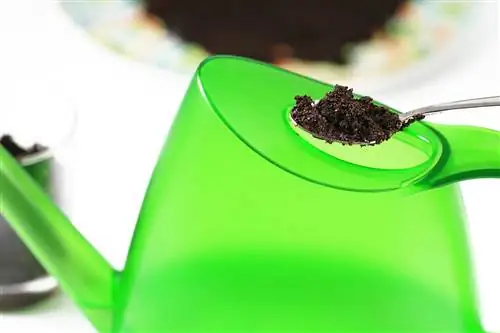
The correct dosage can only be determined through experiments. Since coffee grounds are used as fertilizer, you should observe the following dosage recommendations:
- maximum 50 grams per square meter
- Check the lawn a few days after application
- Adjust dosage depending on amount of clover
- Determining the exact dosage is not easy
- several attempts may be necessary
Application
If you want to try coffee grounds against clover, you need to use them correctly. It is particularly important when using it. that the coffee grounds are incorporated correctly so that they do not lie on the surface of the lawn. Otherwise the nitrogen cannot be released into the soil.
You can do this as follows:
- do not use in the rain
- Spread coffee grounds on the lawn
- work into the top layer of soil with a rake
- don't dig up the lawn
- Water the lawn as usual
Tip:
The coffee grounds must dry out completely before use, otherwise mold will form in the lawn. Only give it cold.

